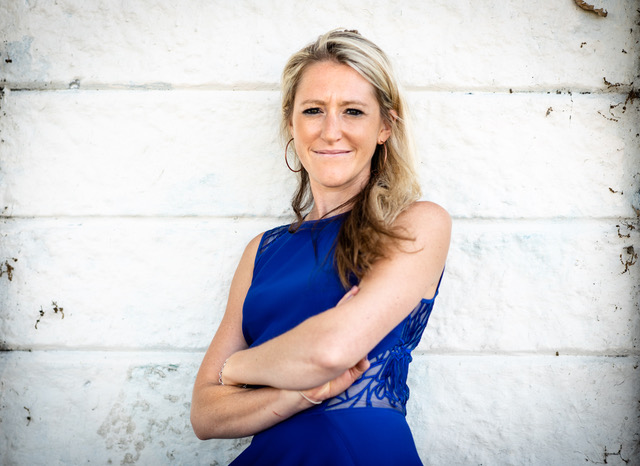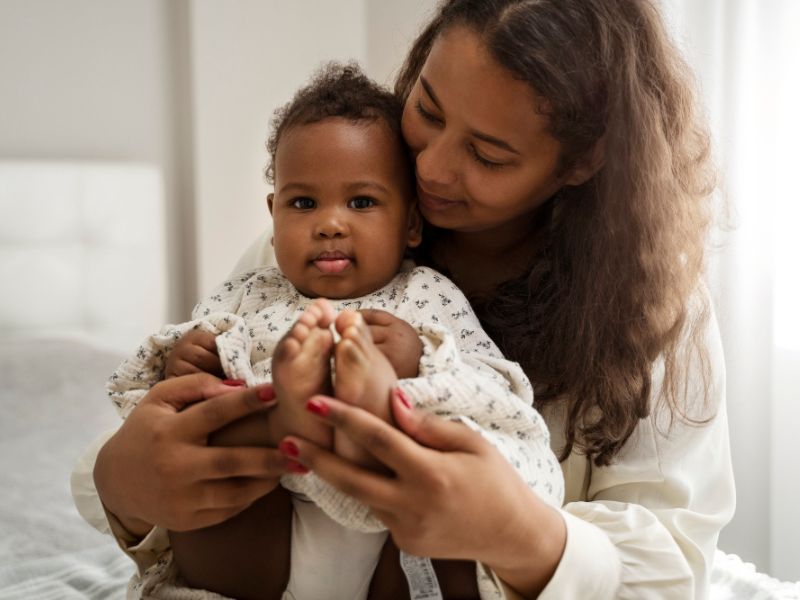WeAreTheCity speaks to Hope Virgo, Mental Health Campaigner, Public Speaker and Author of Stand Tall Little Girl.
Hope is also one of the panellist at our upcoming WeAreFutureLeaders conference on 24 May.
Hope Virgo is the Author of Stand Tall Little Girl, and an international leading advocate for people with eating disorders. Hope helps young people and employers (including schools, hospitals and businesses) to deal with the rising tide of mental health issues which affect one in four people and costs employers between £33 and £42 billion annually. She has been described by Richard Mitchell, CEO of Sherwood Forest Hospital, as “sharing a very powerful story with a huge impact”. Hope is also a recognised media spokesperson, having appeared on various platforms including BBC Newsnight, Victoria Derbyshire, Good Morning Britain, Sky News and BBC News.
For four years, Hope managed to keep it hidden, keeping dark secrets from friends and family. But then, on 17th November 2007, Hope’s world changed forever. She was admitted to a mental health hospital. Her skin was yellowing, her heart was failing. She was barely recognizable. Forced to leave her family and friends, the hospital became her home. Over the next year, at her lowest ebb, Hope faced the biggest challenge of her life. She had to find the courage to beat her anorexia.
Hope will share her extremely harrowing yet inspiring story of recovery. The story of Hope’s recovery will inspire countless others.
At the conference, Hope will be taking part in our Q&A panel, discussing all things mental health. Discover the full agenda for the day here.
WeAreFutureLeaders, now in its third year, is a conference aimed at women (below Director level) who wish to progress in their career or who are preparing for promotion. This is not a conference that labours about the lack of women in leadership positions, this full day learning event where our guests will gain real tangible skills that they can take back in to the workplace the following day.
You can find out more about the conference and book your place here.
Can you tell us a little about your background? Where you’ve come from, where you’ve worked, how you got to where you are today?
I developed anorexia when I was 12 years old and it was my everything. It took over all over me, giving me a sense of value and security. I lived with my anorexia for the next four years keeping it secret from everyone around me. Eventually, aged 17, I was admitted to a mental health hospital where I spent the next year of my life trying to recovery. The thing about anorexia is that recovery is so unbelievable hard, there are times when you long for that anorexic voice back, times when you hate it and times when that battle in your head is so unbearable. Even when I had anorexia I knew there was so much stuff that I wanted out of life. I wanted a job, to travel, to run, and to have children one day. I realised that the anorexia was going to stop me getting to that point but I had to focus on all of these things to motivate me to get well
I am the Author of Stand Tall Little Girl and a leading advocate for people with eating disorders. I work across UK with corporates, the NHS, Schools and the Government to raise awareness of mental health and to equip others to manage their own mental health. I have been working for myself for just over a year and I absolutely love it. I have had to learn about creating boundaries though. Working for myself means I sometimes feel the need to work all the time, I say yes to pretty much everything and then worry I am not working hard enough. It has taken me a while to work this out and I am still learning but I am getting there.
Did you ever sit down and plan your career?
I had this whole plan. I would work in public affairs, work my way up an organisation that worked for a cause I was passionate about and then become a Director. But this all changed in 2016 after I came through my relapse of anorexia. I decided to write a book about my life, sharing my honest story of recovery. I wanted to challenge the myth that to have anorexia you have to be stick thin, to help others not feel alone and to make sure that people know recovery isn’t a straight line but is one hundred percent possible. After my book came out I began to get invited to do speaking engagements and then in 2017 I quit my full time job and have dedicated my time to being a mental health campaigner and public speaker.
What inspired you to get involved with in motivational speaking?
Having lived with anorexia I spent a huge amount of time doubting myself and my ability. There weren’t many people that I could see who had got well and I wanted to change this. I want people to know that you can be strong, independent and succeed despite having a mental illness. Not being able to eat triangle sandwiches or having the odd bad day doesn’t make us a failure and we shouldn’t beat ourselves up. I want to show others that we shouldn’t feel ashamed of our stories but we should use those to empower ourselves, others and make change!
Do you have a favourite experience from your career?
Dropping my #DumpTheScales petition at Number 10 Downing Street. It was like a dream come true heading there on Wednesday with Sean Fletcher, Rachel Morris MBE, Wera Hobhouse MP for Bath, and some friends who have helped on the campaign. Walking in to Downing Street with cameras filming and interviews was just amazing. The petition has been my life and soul the last 8 months and I am so pleased with how it has been progressing and working. There is still a way to go but reaching this far just feels amazing.
What do you think WeAreFutureLeaders guests will gain from your talk?
Insight in to working and living when you have anorexia. They will see a 29-year-old with real drive and determination to use her story in a positive way to make long term change. They will leave understanding more about what it is like living in recovery and also how as individuals they can support one another. We all have a duty of care to each other and they will leave my talk seeing the impact they can have on others.
What are your top three tips for success?
Believe in yourself and don’t let anyone tell you that you can’t achieve something!
Have those around you that you can check in with – this can be for both the positives but also with planning, or ideas. Over the last two years I have built up a network of people who I can download on to and have honest conversation with. It is brilliant to have these people and I can always count on them to be honest if they think things are good or bad.
Take time for yourself so that you don’t burn out or lose sight of what is important.
What has been your biggest challenge during your career?
Managing my work life balance. Working for myself is brilliant and I absolutely love what I do but I also find it very hard to switch off. Over the last few years I have at times let relationships slip, holidays slip and my social life slip because I am so driven. The danger of this is that you can burn out or for me get so set on fixing others. Sometimes I need to take a step back and look at what I have achieved and have some time to myself.
Which female role models are you most inspired by?
Dame Kelly Holmes and Natasha Devon MBE – two women who I have been lucky enough to meet. Both who have a real drive and determination to make change and achieve their dreams. They don’t give up and that is just amazing!
In your opinion, what is the biggest obstacle for women at work and how can it be overcome?
One of my frustrations in work is that sometimes women feel unable to speak up about things that might be bother them. Whether it is asking a question at an event or being direct in a meeting. I think women struggle to this because if we speak up or voice a concern, sometimes it can be construed as moaning, nagging or being negative whereas if a male spoke up it would be seen as constructive. As women we have every right to speak up and voice concerns and the more we do it the better.
If you could change one thing to accelerate the pace of change for Gender Parity, what would it be?
It is about getting more women as role models, sharing stories, working in a variety of jobs. Enabling women to feel empowered to speak up and to empower other women to do the same across all sectors, including education, medicine and politics. We need to help women and girls increase their global platform so that our voices are heard in all decisions and so we are at the forefront influencing change.
We need to then talk about these female role models whether that’s in the education system or in our homes we need to help other younger females aspire to be like that too. By having these role models, it will change the narrative of what girls can and can’t do. I hope my work is helping that little bit to move things in the right direction.
What piece of advice would you give to your younger self?
Talk and believe in yourself. I spent a lot of my childhood having very bad self-esteem, I felt trapped in my thinking and my beliefs and did not really know what to do about it. I felt ashamed that I felt certain things and that certain things had happened to me. If I could speak to my younger self, I would tell her to talk. Don’t feel ashamed of certain feelings that you feel. Don’t be embarrassed. Embrace who you are and if bad things happen use those to create passion and drive to push for change.
SECURE YOUR SEAT










